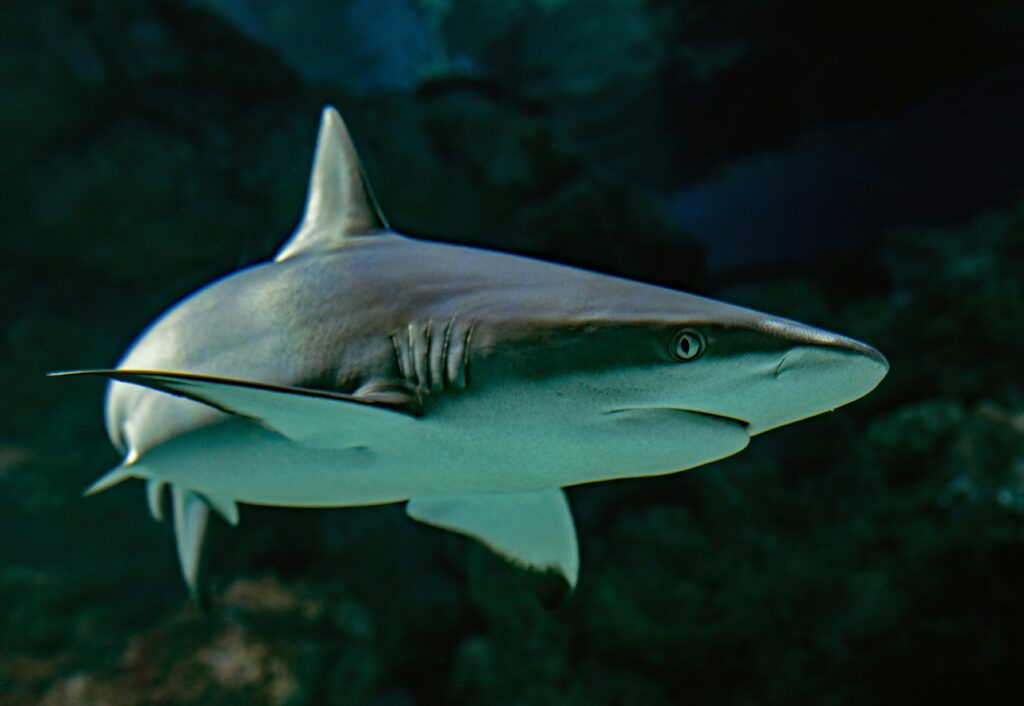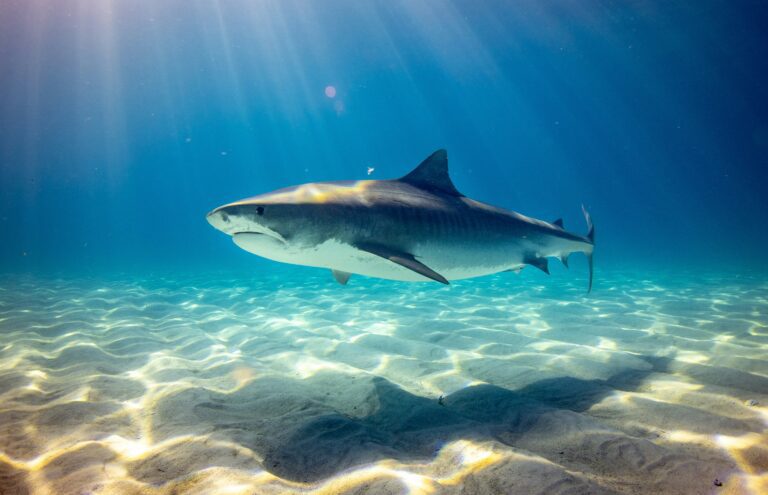Sharks have long been portrayed as the villains of the ocean, instilling fear in the hearts of swimmers and surfers alike. From Hollywood blockbusters to sensational news headlines, these apex predators have often been depicted as ruthless killers lurking in the depths. However, beyond the sensationalism lies a deeper truth: sharks are not just fearsome predators but essential guardians of the ocean. In this article, we will delve into the complex world of sharks, exploring their misunderstood nature and highlighting their crucial role in maintaining the health of marine ecosystems.
Common Misconceptions about Sharks
Sharks have long been depicted as ruthless predators in media and pop culture, perpetuating numerous misconceptions about these fascinating creatures. These misconceptions often overshadow the truth about shark behavior and their role in the ecosystem, hindering conservation efforts.
Sharks are Mindless Killers
One of the most prevalent misconceptions is that sharks are indiscriminate killers, constantly hunting humans. However, the reality is that sharks do not intentionally target humans as prey. Most shark attacks are cases of mistaken identity, where the shark confuses a human for its usual prey, such as seals or fish. In fact, humans pose a much greater threat to sharks than sharks do to humans, with millions of sharks killed each year due to activities such as fishing and finning.
All Sharks are Large and Dangerous
Another common misconception is that all sharks are massive, ferocious predators. While some shark species, such as the Great White Shark, are indeed large and powerful, the majority of shark species are relatively small and harmless to humans. Sharks come in a variety of sizes, from the massive Whale Shark to the tiny Dwarf Lanternshark. Most shark species are not a threat to humans and prefer to feed on smaller fish and plankton.
Sharks are Cold-blooded Killers
The portrayal of sharks as cold-blooded killers in movies and documentaries contributes to their negative image. In reality, sharks exhibit complex behaviors and social structures, displaying traits such as curiosity, playfulness, and even cooperation. Some species of sharks are known to form social bonds and exhibit parental care towards their offspring. By humanizing sharks and highlighting their more benign behaviors, we can help dispel the fear and stigma surrounding them.
Sharks are Unimportant to the Ecosystem
Contrary to popular belief, sharks play a crucial role in maintaining the health of marine ecosystems. As apex predators, sharks help regulate the populations of prey species, preventing them from overpopulating and disrupting the balance of the ecosystem. Without sharks, the delicate balance of marine food webs could collapse, leading to cascading effects throughout the entire ecosystem. Protecting sharks is not only essential for their survival but also for the health of the oceans and ultimately, our own well-being.
Shark Ecology and Behavior
Sharks are a diverse group of fish found in oceans around the world, inhabiting a wide range of habitats from shallow coastal waters to the deep sea. With over 500 known species, sharks exhibit remarkable diversity in size, shape, and behavior. They can be found in tropical coral reefs, polar regions, open ocean, and even freshwater environments. Each species has evolved unique adaptations to thrive in its specific habitat, whether it’s the streamlined body of a fast-swimming pelagic shark or the flattened shape of a bottom-dwelling species.
Crucial Role in Marine Ecosystems
As apex predators, sharks play a vital role in maintaining the balance of marine ecosystems. By regulating the populations of prey species, they prevent overgrazing of vegetation and maintain biodiversity. Without sharks, certain prey species could become overabundant, leading to cascading effects throughout the food web. Moreover, sharks help remove sick or weak individuals from prey populations, contributing to overall prey health. Their presence is essential for the health and resilience of marine ecosystems.
Fascinating Aspects of Shark Behavior
Sharks exhibit a wide range of fascinating behaviors, from complex social interactions to remarkable migratory patterns. Many shark species undertake extensive migrations, traveling thousands of miles in search of food, mates, or suitable breeding grounds. For example, the Great White Shark is known for its long-distance migrations between feeding and breeding areas. Additionally, some species of sharks display social behaviors, forming loose aggregations or even engaging in cooperative hunting. Sharks also exhibit diverse reproductive strategies, with some species giving birth to live young while others lay eggs.
Understanding shark behavior is crucial for their conservation and management. By studying their movements, scientists can identify important habitats and migration corridors that need protection. Additionally, insights into social dynamics and reproductive biology can inform conservation strategies aimed at ensuring the long-term survival of these apex predators. By appreciating the complexity of shark behavior, we can better appreciate their role in marine ecosystems and work towards their conservation.

Ecosystem Services Provided by Sharks
Sharks play a crucial role in maintaining the health and balance of marine ecosystems through various ecosystem services they provide.
Control of Prey Populations and Biodiversity
As apex predators, sharks help regulate the populations of prey species, preventing them from becoming overabundant and disrupting the balance of the ecosystem. By targeting sick, weak, or old individuals, sharks help maintain the overall health and genetic diversity of prey populations. This control of prey populations also indirectly benefits other species within the ecosystem, as it prevents certain prey species from dominating and outcompeting others. In this way, sharks contribute to the maintenance of biodiversity and the stability of marine food webs.
Economic Value in Ecotourism
Sharks have significant economic value in ecotourism, attracting tourists from around the world eager to witness these magnificent creatures in their natural habitat. Shark ecotourism activities, such as cage diving, snorkeling, and diving expeditions, generate substantial revenue for coastal communities and businesses. Tourists are willing to pay premium prices for the opportunity to encounter sharks up close, contributing to local economies and providing alternative livelihoods for communities that might otherwise engage in destructive fishing practices. Preserving shark populations is therefore not only important for ecological reasons but also for sustaining the ecotourism industry and supporting livelihoods dependent on shark-related tourism.
Importance for Future Generations
Preserving shark populations is essential for ensuring the health and sustainability of marine ecosystems for future generations. Healthy shark populations contribute to resilient and biodiverse ecosystems, which provide numerous ecosystem services essential for human well-being, such as food security, climate regulation, and coastal protection. By maintaining balanced marine ecosystems, sharks help ensure the continued availability of resources and ecosystem functions that support human societies. Additionally, preserving sharks allows future generations to experience the wonder and beauty of these apex predators and the diverse marine ecosystems they inhabit. Conservation efforts aimed at protecting sharks benefit not only present but also future generations, ensuring that they inherit a healthy and thriving ocean ecosystem.
VIDEO CREDITS NGW
FAQs
Q. Are sharks really misunderstood predators?
A. Yes, sharks are often misunderstood. They have a reputation as ruthless killers, but in reality, they play a crucial role in maintaining the balance of marine ecosystems.
Q. What makes sharks vital guardians of the ocean?
A. Sharks are apex predators, meaning they regulate the populations of other marine species, thus helping to maintain the health and diversity of the ocean.
Q. Do sharks pose any threats to humans?
A. While shark attacks on humans do occur, they are rare. Sharks primarily feed on fish, seals, and other marine animals, not humans.
Q. How do sharks benefit the ocean ecosystem?
A. Sharks help to keep prey populations in check, preventing overgrazing of marine vegetation and ensuring the overall health of the ecosystem.
Q. What are some misconceptions about sharks?
A. One common misconception is that all sharks are aggressive and dangerous. In reality, most shark species are not interested in attacking humans and only do so when they mistake them for prey.



